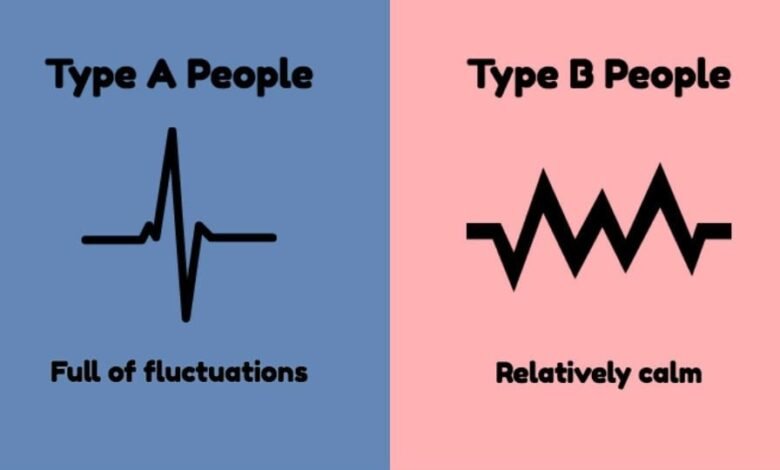Unveiling the Dynamics of Type A vs Type B Personalities: A Comprehensive Guide

In the domain of mental exploration, the differentiation between Type A vs Type B characters has for some time been a subject of interest, especially concerning its suggestions on pressure-related medical problems and cardiovascular prosperity. Starting during the 1950s, the Sort An and Type B character hypothesis has essentially added to well-being brain science, offering experiences into how particular character types could impact a singular’s helplessness to coronary illness.
Type A Character: The Upper hand
People ordered under the Kind A character are commonly set apart by a high drive, intensity, and a consistent need to get a move on. These characteristics, while frequently prompting huge accomplishments and achievement, may likewise incline such people toward more significant levels of pressure, raised circulatory strain, and other well-being hindrances. The first concentrate via cardiologists Friedman and Rosenman, alongside ensuing exploration, highlights a possible relationship between Type A ways of behaving and an expanded gamble of cardiovascular sicknesses. This affiliation, but discussed, features the significance of perceiving and tending to the pressure prompting parts of Type A ways of behaving, particularly in high-pressure conditions like schools and work environments.
Type B Personality: The Relaxed Counterpart
Interestingly, Type B character qualities exemplify a more loose, patient, and stress-strong disposition. People with a Kind B direction are frequently viewed as easygoing, not so much cutthroat, but rather more versatile to changes and stressors. This character type, as indicated by research, is less inclined to experience the ill effects of pressure-instigated medical problems, offering an obvious conduct and well-being difference to their Sort A partners. The casual idea of Type B people permits them to explore life’s difficulties with a more settled demeanor, possibly diminishing their gamble of coronary sicknesses.
Historical Context and Evolution of the Type A vs Type B Theory
The calculated structure of Type A vs Type B characters has gone through critical development since its origin by Meyer Friedman and R.H. Rosenman during the 1950s. Their spearheading work prompted the recognizable proof of ways of behaving related to an expanded gamble of heart sicknesses, laying the preparation for additional investigations. The Western Cooperative Gathering Concentrate during the 1970s, for example, supported the connection between Type A ways of behaving and coronary illness, featuring the hypothesis’ significance. Ensuing many years saw a refinement of the hypothesis, with scientists distinguishing explicit components inside Type A ways of behaving, like antagonism, as key gamble factors.
Character Traits and Lifestyle Implications
Type A people are in many cases portrayed by their tenacious quest for objectives, fretfulness, and a penchant for stress and hostility. These attributes, while driving achievement, additionally open them to well-being chances, underlining the requirement for compelling pressure on the executive’s systems. Then again, Type B characters, with their casual methodology and persistence, exhibit a better harmony between work and individual life, proposing a lower penchant for stress-related medical problems.
Concluding Thoughts
The Type A vs Type B character hypothesis not only gives an entrancing focal point through which to look at the human way of behaving but also fills in as a significant device in figuring out the exchange between character qualities, stress, and well-being results. Perceiving and supporting the positive parts of both character types, while moderating their particular well-being gambles through customized mediations, can essentially add to the advancement of all-encompassing prosperity and stress versatility among people.
This extensive investigation highlights the significance of a nuanced comprehension of Type A vs Type B characters, making ready for additional educated ways to deal with well-being, prosperity, and self-improvement in our undeniably perplexing and unpleasant world.



